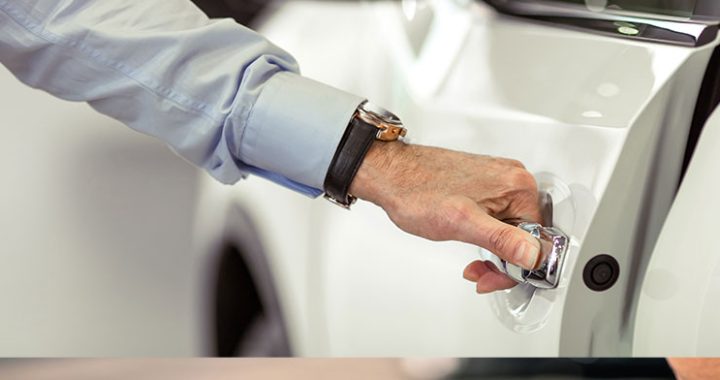Buying a new car can be intimidating, but with preparation, you can make sure to drive off the lot with a great ride and deal. Before you walk into a dealership ready to buy, consider these crucial factors.
-
Research Dealerships
Before choosing a dealership, research their reviews online and talk to friends and family about their experiences. It always helps to look at dealership reviews and to see which dealerships have earned high marks or special awards.
If you are looking for a luxury car, remember that many luxury brands don’t work hard to compete because their name sells their inventory. For instance, Mercedes Benz may have the nameplate you think you want, but Lexus may have the vehicle you want at a better price. Stay flexible and find the best luxury vehicle value.
When you’re shopping, don’t buy from the first dealership you go to — travel to different dealerships in the area, take test drives, and compare offers. With a good understanding of your needs and means, you won’t buy the wrong ride. DealerRater is a good first stop for reviews.
-
Price and Financing
Exploring potential finance options is a critical step in maximizing the cost-effectiveness of a big purchase like a car. One of the first decisions is between buying or leasing. This may save you money, allowing you to choose a higher trim level in the luxury car inventory.
When leasing, you pay for the difference in the car’s value before and after starting your agreement. Buyers should avoid leasing if they plan on driving more than their allocated miles, are worried about damage to the car, or think there’s a chance they would end the lease early.
Whether you’re buying or leasing, a high credit score will give you access to loans with a lower interest rate. If your credit score could be better, examine your credit report for opportunities to improve it. Once you have your credit information, review loan options provided by local dealerships to find a deal that works for you.
It’s also vital to consider the size of monthly payments. An initial down payment isn’t always necessary, but it can be convenient to reduce the size of the loan and monthly payments.
-
How Do You Plan On Using Your Car?
Thinking about where you plan on driving will provide essential guidance for every other question in the car buying process. Depending on your needs, different features may be necessary or superfluous.
Consider the surfaces and distances the car will be navigating. Cars have different MPG ratings for highway and city driving since city driving requires stopping and starting frequently.
Furthermore automobiles perform differently on paved, dirt, gravel roads, steep inclines, or when hauling or towing large payloads.
If you plan to use your car for a family getaway or to drive a group of friends, comfortably seating all of them is an essential feature. You don’t need to be doing these kinds of activities every day for it to be nice to have a car that can do them all.
Knowing your needs will help you figure out which additional features justify high costs, making it easier to choose the right car for your budget.
-
Operational Costs
Even if you score a deal on price, every vehicle comes with built-in operational costs. These include maintenance and wear and tear a mechanic might deal with, as well as the paperwork and taxes associated with registering, licensing, insuring, and parking the car.
Assessments of operational costs should also consider how long you plan on keeping this car before getting a new one. Relatively marginal advantages may end up making a big difference over time.
-
Safety
You never want to be out on the road in a machine that might break. Before purchasing a vehicle, look at its safety ratings and features to see how they compare. A test drive is a fantastic opportunity to get a feel for new safety features offered in any new vehicle you are considering.
Make the most of your test drive by taking the opportunity to evaluate backup cameras, lane assist, or blind spot detectors. Always check what each feature costs and consider whether you anticipate utilizing it or can pocket the savings.


